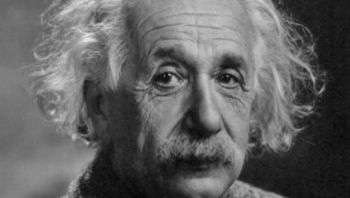November 28, 2016 weblog
Best of Last Week – Challenging Einstein, the Arctic overheating and a breakthrough in slowing down aging

(ScienceX)—It was another good week for physics as a pair of researchers, João Magueijo with Imperial College London and Niayesh Afshordi with the Perimeter Institute suggested that a theory that challenges Einstein's physics could soon be put to the test—first proposed in the early 90's, the theory has matured to the point that the pair believe it has finally become testable. Also a team at Caltech found new clues emerging in a 30-year-old superconductor mystery regarding how they actually work by confirming that the pseudogap represents a distinct state of matter.
In technology news, phone users were alarmed when it was announced that an Israeli firm can steal phone data in seconds—Cellebrite's demonstration showed just how vulnerable phones still are. More optimistically, researchers with Ulsan National Institute of Science and Technology demonstrated thermoelectric paint that enables walls to convert heat into electricity. Also, a team working in Australia reported that a frontline attack against HIV infection is closer to reality—suggesting that significant progress has been made in developing a vaccine for those infected. And a team at the University of Bristol announced the 'Diamond-age' of power generation as nuclear batteries were developed using nuclear waste to create an artificial diamond.
In planetary news, mathematician Harry Stern with the University of Washington found evidence that showed Captain Cook's detailed 1778 records confirm global warming today in the Arctic—comparing earlier notes with modern satellite imagery showed how much the ice edge has moved. Also a team at the Danish Meteorological Institute noted that the overheated Arctic was a sign of a climate change 'vicious circle'—air over the ice cap was nine to 12 degrees Celsius above average during the prior four weeks, a truly unusual phenomenon that they attribute to a variety of events related to global warming. Less ominous, a pair of researchers, Tom Edinburgh with the University of Reading and Jonathan Day with the University of Cambridge found that Antarctic explorers helped make a discovery—100 years after their epic adventures—logs from ship captains hundreds of years ago showed that sea ice around Antarctica has hardly changed.
And finally, for those people who are holding out hope that scientists will figure out how to stop aging before it is too late for them, a team of researchers from UCLA and Caltech reported that they were meeting with some success in turning back the aging clock—by removing mutated DNA from mitochondria.
© 2016 ScienceX





















